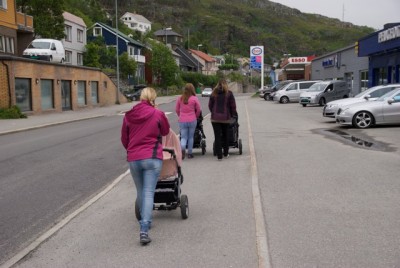Parents in Norway seem to be opting for simpler names that may be more internationally understood when their children grow up, travel abroad and communicate electronically. The new top choice for boys’ names, though, may still raise questions over its spelling.

Norway’s state statistics bureau SSB released its annual list this week of the names most often given to babies born last year. Gone are names that include the Norwegian letters “æ, ø” and “å,” which can create challenges when choosing e-mail addresses or being translated into other languages or for computer use. The spelling of names including the letter “ø,” for example, often needs to be changed to a simple “o” or “oe” on everything from airline tickets to visa forms, and sometimes that can lead to various identity issues.
The most popular names given to the newest generation of babies born in Norway avoid such issues, either consciously or unconsciously. “Emma” emerged as the name given to the most baby girls last year, possibly because it’s easy to pronounce in almost any language and easy to spell as well. SSB noted that “Emma” has been a popular choice for the past several years and returned to the top of its list in 2013.
The next most popular list on SSB’s “Top Ten” list still may leave the girls needing to specify how they’re spelled: Sara/Sarah, Sofie/Sophie (pronounced “So-FEE-ah” in Norwegian), Ingrid/Ingerid, Nora/Norah, Maja/Maia/Maya, Linnea/Linea, Thea/Tea (TAY-ah), Sofia/Sophia, and Emilie.
Swedish influence
The top choice for boys’ names still raised spelling issues, but few pronunciation challenges, with a majority of parents opting for “Filip/Fillip/Philip/Phillip.” That name was followed by a relatively simple “William” as the second-most popular choice for boys.
Then came Lucas/Lukas, Mathias/Matias (roughly pronounced “Ma-TEE-uss” in Norwegian), Jakob/Jacob and Oskar/Oscar, followed by Oliver (“Oh-LEE-vair”), Alexander/Aleksander (Ah-lex-SAN-dair”), Magnus and Isak/Isac/Isaac (“EE-sahk”).
“Nora” and “Lucas” were the most popular names in 2012, with the variations of “Filip” down in 18th place. SSB officials had no immediate explanation as to why “Filip/Fillip/Philip/Phillip” suddenly soared to the top of their list in Norway (external link, in Norwegian) last year, but noted that many names in Norway are influenced by those in Sweden, where both “Filip” and “Emma” are common.
Regional variations
Some parents still choose traditional Norwegian names for their children, with even old Viking names making a comeback in recent years. SSB’s list indicates, however, that many are opting for practicality in a global age.
SSB noted that there were regional variations within Norway, with “Olivia” topping the list of names for girls in Stavanger, for example, and claiming the number-two spot in Bærum, just west of Oslo. The most common name given to baby boys in Oslo was, once again, various spellings of “Mohammad,” while “Oliver” was most popular in the western counties of Hordaland and Sogn og Fjordane, and “Lucas” was most popular in Hadeland, north of Oslo.
Only half the babies born in Norway last year were given a middle name, while 8.6 percent were given a hyphenated last name, to reflect both of their parents’ last names. It’s common for Norwegian women to retain their own names when they marry.
newsinenglish.no/Nina Berglund

